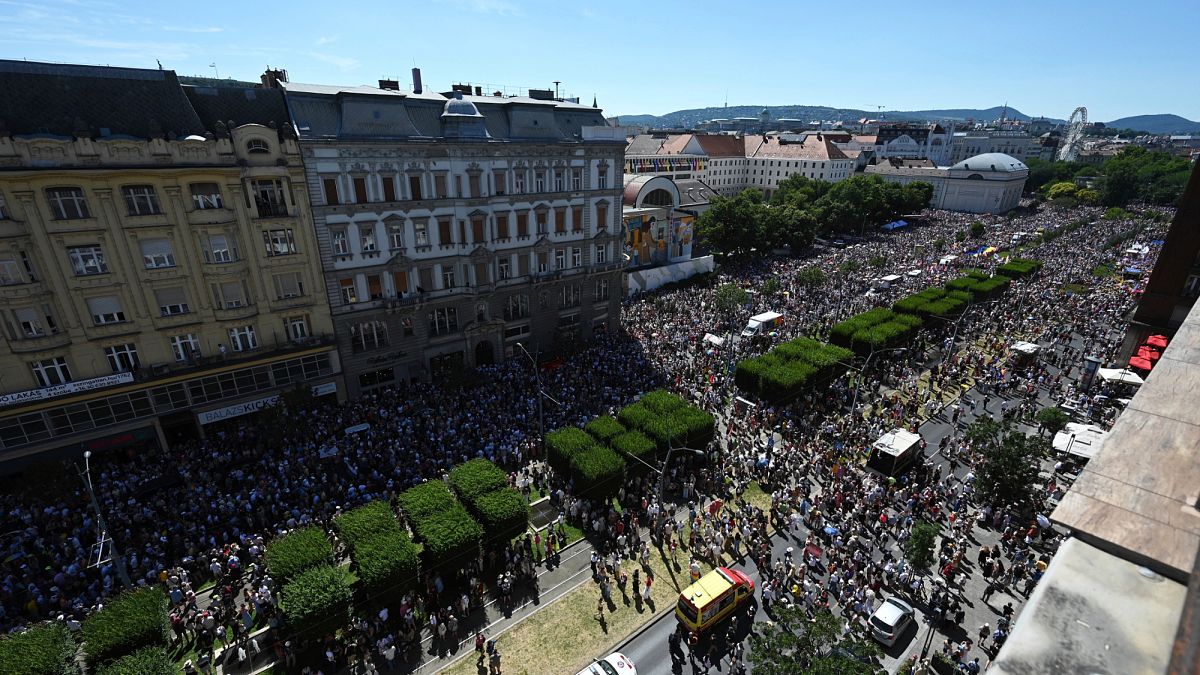

Across the globe, recent protests have brought attention to pressing issues, uniting diverse voices in calls for change and justice. From celebrations of identity to calls for governmental accountability, communities have rallied together, focusing on shared aspirations for a more equitable future. Here are some notable events that illustrate this atmosphere of resilience and determination.
In Hungary, the capital city of Budapest was the scene of a vibrant Pride celebration, marking the 30th anniversary of the parade. An estimated crowd of 100,000 to 200,000 people took to the streets, casting aside a government ban to advocate for LGBTQ+ rights. This act of defiance came amidst policies by Prime Minister Viktor Orbán’s government that have been perceived as increasingly oppressive towards the LGBTQ+ community. Despite the challenges, the parade proceeded peacefully, demonstrating a strong community spirit bolstered by international solidarity, as suggested by government remarks on the influence of external forces such as the European Union.
Turning to Serbia, the recent collapse of a renovated rail station canopy in Novi Sad, resulting in tragic casualties, has sparked widespread anti-government protests. The public has been calling for accountability regarding alleged corruption in state infrastructure projects. The movement swiftly gained momentum as thousands of Serbians set up street blockades following the arrests of protestors, highlighting a shared demand for transparent governance and safety assurances in public projects.
Another poignant moment unfolded in Turkey, where police interventions led to over 50 arrests ahead of a banned LGBTQ+ Pride march in Istanbul. The detentions have been criticized by the city’s bar association as arbitrary and unjust, reflecting the tension in the region over rights and freedoms of expression. Yet, advocates continue to voice their commitment to equality, underscoring an enduring resolve in the face of adversity.
In East Africa, human rights activists Boniface Mwangi and Agather Atuhaire have taken a bold step in seeking justice for alleged abuses during their detention in Tanzania. Their lawsuit against the Tanzanian government highlights claims of sexual torture and human rights violations. This legal battle is emblematic of the broader struggle for accountability and respect for civil liberties in the region, drawing attention to the conditions that activists face while advocating for democratic processes ahead of upcoming elections.
Meanwhile, Thailand’s political landscape has been shaken by protests demanding the resignation of Prime Minister Paetongtarn Shinawatra. Tensions have arisen from a leaked phone conversation related to a border dispute with Cambodia, which has stirred nationalist sentiments. The prime minister’s handling of the situation, critiqued for perceived leniency, has fueled public demonstrations, illustrating the complexities of international relations and domestic governance.
These events underscore a global tapestry of activism and movements advocating for justice, equality, and transparency. Despite challenges, the collective actions of individuals and communities continue to illuminate the power of peaceful protest and discourse, inspiring hope for positive change and the aspiration for a more inclusive future. In every corner of the world, these demonstrations reflect a shared resolve to address grievances and pave the way for a more equitable society, showcasing the strength through unity that defines humanity’s ongoing journey toward progress.
Source: {link}
